How to Manage GERD with Healthy Eating and Best Acid Reflux Recipes
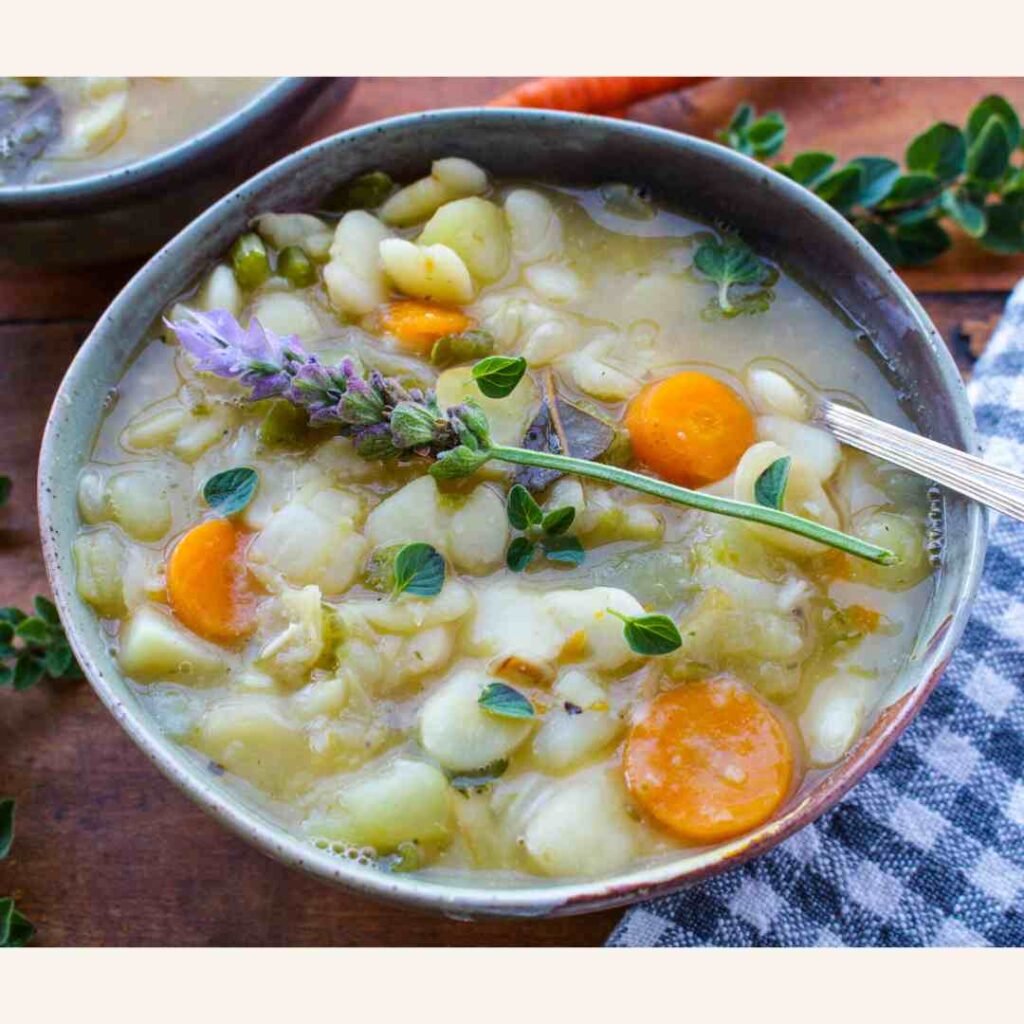
Help manage GERD and stop acid reflux symptoms with these healthy plant-based GERD eating tips and acid reflux recipes.
Do you get uncomfortable acid reflux and heartburn from time to time? You’re not alone! And if you suffer from GERD, this troublesome condition can bother you many times a week. So, what can you do about it? Eating a plant-based diet may offer some relief from GERD, the medical term for frequent acid reflux occurring more than twice a week. A plant-based diet, including vegetarian or vegan diets, and even the plant-centric Mediterranean diet, has been shown to reduce laryngopharyngeal reflux, commonly known as acid reflux.
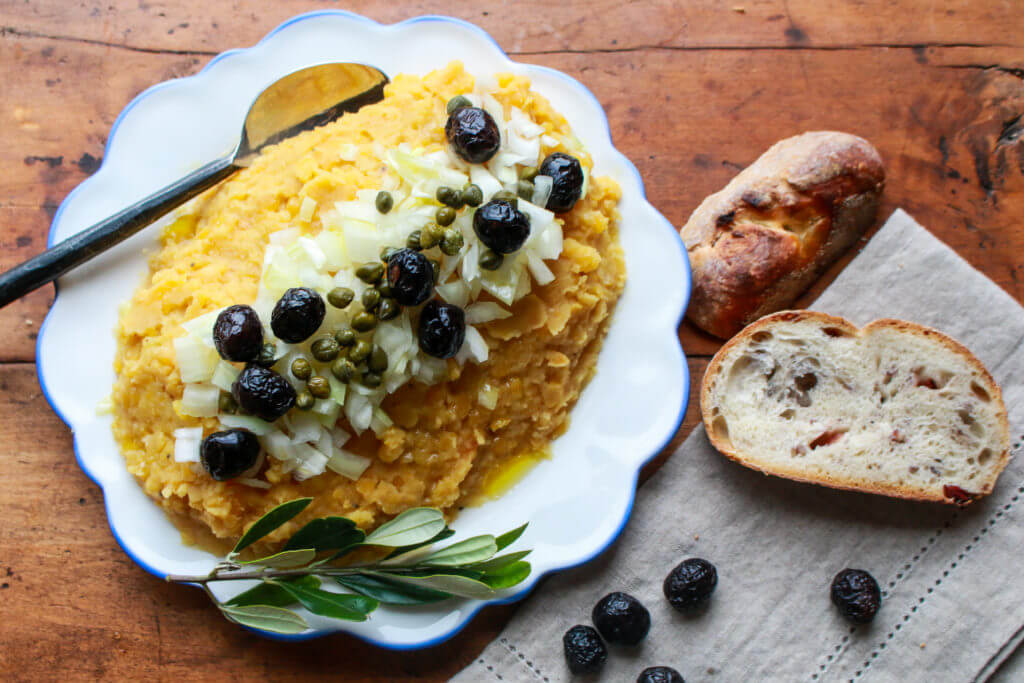
What Causes GERD?
GERD is caused when the lower esophageal sphincter (LES) does not close properly or tighten up as it should. The LES is supposed to open up and relax when you swallow, then close after you are done swallowing and eating. When the LES malfunctions and remains open, the hydrochloric acid (HCl) from your stomach migrates back up into your esophagus, causing a burning sensation and pain. The burning can be intense, because HCl acid in the body ranges from 1-3 on the pH scale, only weaker than battery acid and stronger than lemon juice. GERD can also cause uncomfortable symptoms, such as excessive throat clearing, coughing, and chronic sore throat.
How long does acid reflux last?
It usually lasts about 2-4 hours until the food you eat goes from your stomach to your small intestine.
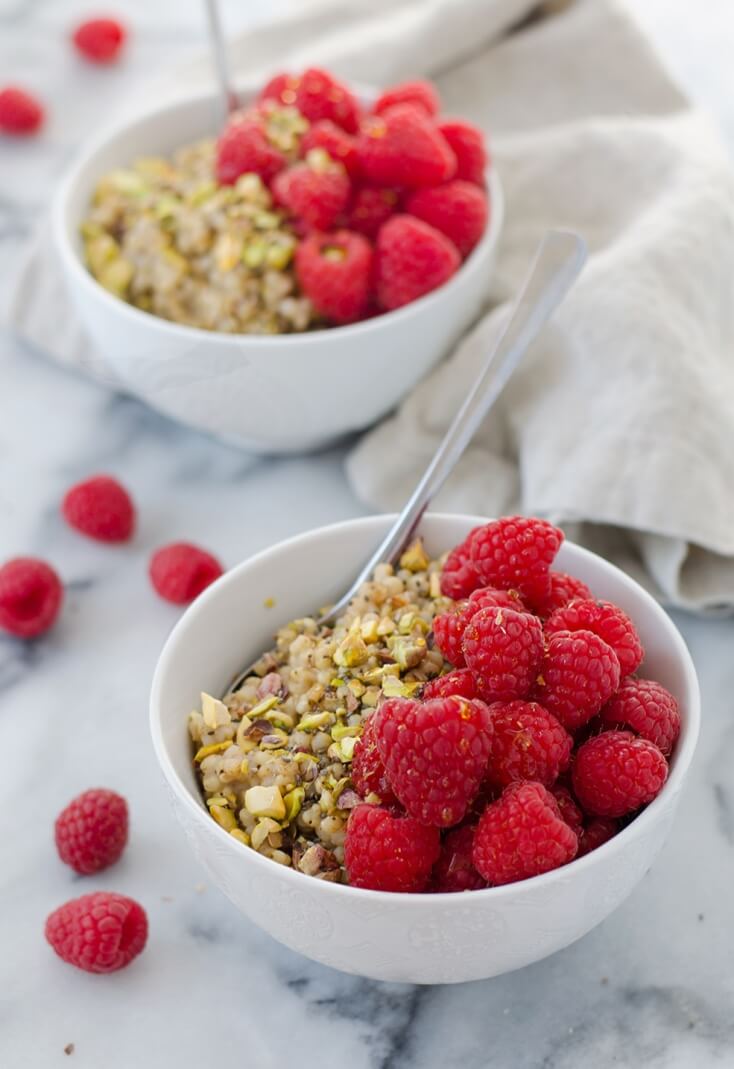
GERD Diet Approach
A plant-based lifestyle, such as a vegetarian or vegan diet, or even a Mediterranean eating style, maybe an ideal way to help reduce acid reflux symptoms. Plant-based eating emphasizes more whole, unprocessed plant foods, including fruits, vegetables, grains, nuts, and seeds. Research shows support for eating this way. In a recent study, acid reflux symptoms were reduced by about 40% when consuming a Mediterranean diet vs. 27% when consuming a standard diet and treating acid reflux with proton pump inhibitors (PPIs), typically found as over the counter heartburn remedies such as Prilosec, Prevacid, and Nexium. PPIs are effective in treating acid reflux and long-term acid reflux conditions such as GERD, but research suggests there are risks from taking them. A new study found that PPIs should not be used long term because of harmful health effects. PPIs have been linked to dementia, interference with blood medications, progression of kidney disease, micronutrient deficiency, and reduction in bone mineral density.
Another 2017 study of people with acid reflux who consumed a plant-based diet of mostly fruit, vegetables, legumes, nuts, and whole grains with high amounts of fiber showed a 63% reduction of symptoms in just six weeks. The researchers reported that a plant-based diet was more effective than using over the counter medications. It could be that plant-based foods contain phytochemicals, which have protective properties. One benefit of these phytochemicals is reducing the inflammation that may cause the unpleasant effects of acid reflux.
Along with eating a more plant-based diet, try a few other tips to manage GERD. The National Institute of Diabetes and Digestive and Kidney Diseases (NIDDK) recommends eating small, frequent meals throughout the day to alleviate GERD symptoms. NIDDK also advises avoiding trigger foods such as chocolate, coffee, and greasy or spicy foods.
How to stop acid reflux at night?
In addition to these diet tips, avoid eating at least 3 hours before bedtime, elevate your head when you sleep, and sleep in loose clothing.
Going More Plant-Based for GERD
Aim for plant-based eating by focusing on whole, minimally processed fruits and vegetables, whole grains, nuts and seeds, and legumes such as beans and lentils. If you are new to plant-based eating, you may gain inspiration from the Mediterranean diet as a starting point, which is a great transition from eating a more standard, meat-rich American diet to one that is focused primarily on plants. The Mediterranean diet also emphasizes the simple principles of eating healthy fats, and minimally processed, whole plant-based foods that are high in fiber. Healthier protein sources, such as legumes, nuts, and seeds are encouraged.
Plant-Based Eating Tips for GERD Diet and Acid Reflux Recipes
Go more plant-based to help manage GERD, with these helpful acid reflux diet tips and GERD recipes.

1. Choose Healthy Fats in Moderation
Choose healthy fats as part of your meals in moderate amounts—focus on fats from avocados, nuts, seeds, and olives. Extra virgin olive oil is the perfect oil to cook with, as well as dress your salads. It is minimally processed compared to other vegetable oils, and contains a healthy profile of fats.
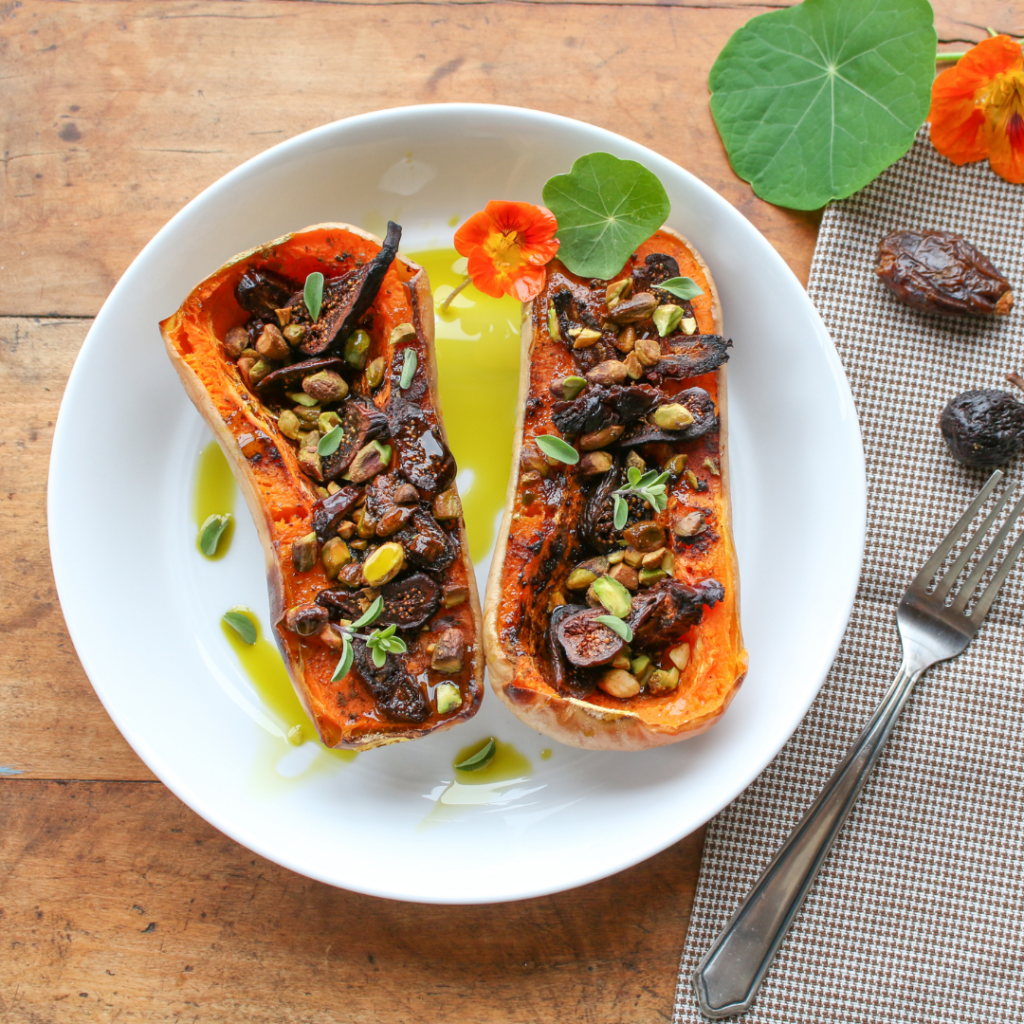
2. Eat More Vegetables
Mediterranean superstars, such as green vegetables, olives, avocados, mushrooms, carrots, eggplant, onion, garlic, and bell peppers are easily accessible and easy to prepare plant-based options. Keep in mind that if tomatoes trigger acid reflux, you may need to limit these in your diet.

3. Fit Fruit in
Fruit with fibrous skin, such as berries and apples and tangy pomegranate seeds, are perfect sweet additions to a healthy eating plan. Bananas are also easy to digest and contain beneficial electrolytes. Citrus fruits are recommended due to their high antioxidant vitamin C content, but may trigger acid reflux for some people, so you may need to limit them in your diet if they are a problem.
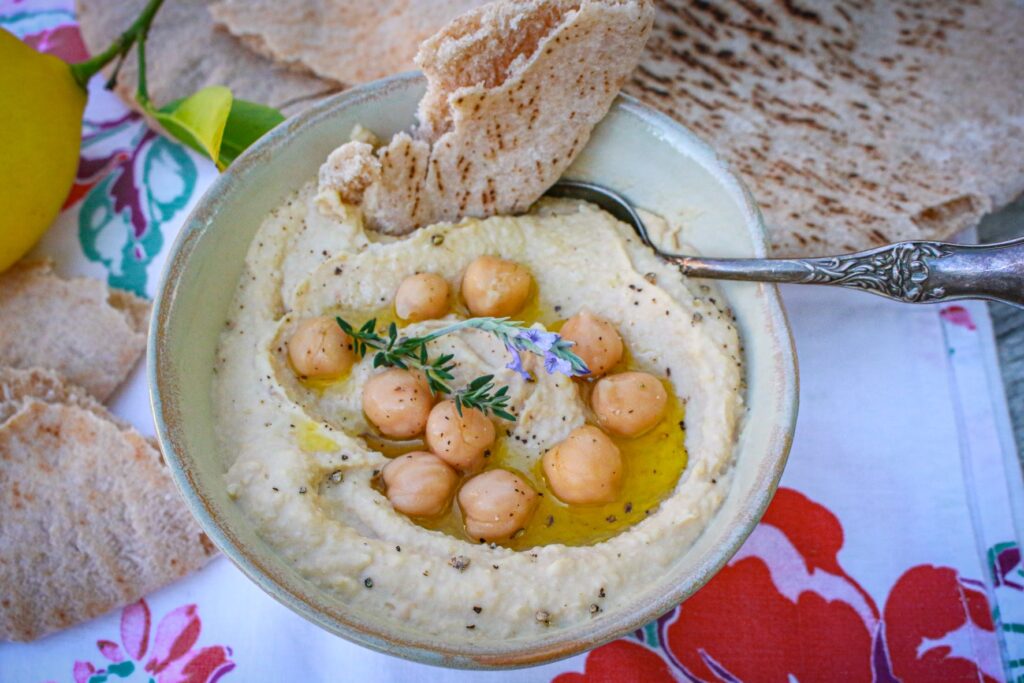
4. Remember Fiber
Consumption of plant-based fiber-rich foods, such as lentils, beans, chickpeas, and whole grains is an integral part of a healthy plant-based lifestyle. Enjoy chickpeas in a hummus dip with whole wheat pita bread for a delicious burst of fiber.
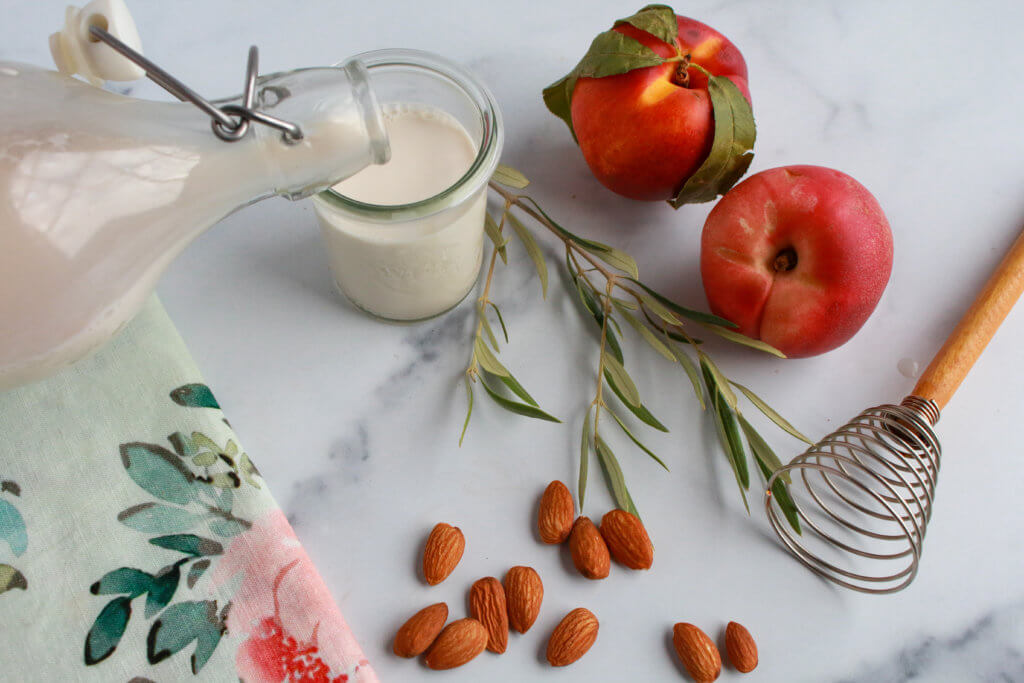
5. Plant-Based Dairy Alternatives
Plant-based milk alternatives, such as milks, cheeses, yogurts, sour cream, and cream cheese, can be easily tolerated in your GERD friendly diet. Fortified plant-based milk, cheese, and yogurt are excellent ways to get calcium and vitamin D for bone health, too.

6. Pile on the Plant Protein
Try to include pulses, such as beans and lentils, nuts (which are also full of antioxidant vitamin E and healthy fats to promote heart health), and soy foods (tofu, tempeh, edamame) to meet your protein needs. Seeds such as flax, chia, and pumpkin, are another source of protein, as well as fiber.
7. Healthfully Hydrate
What to drink for acid reflux? Drink water as your number one source of hydration, and remember that beverages with caffeine may trigger acid reflux in some.
For other essential guides on plant-based eating for health, check out the following:
Eating for IBS on a Plant-Based Diet with Kate Scarlata
Fight Diabetes with Plants
How to Manage Kidney Disease on a Plant-Based Diet
Top Questions on Mastering Diabetes with Plant-Based Eating
Fight Hypertension with Plants!
Best Odds Diet Approach for Fighting Cancer
Main image: Lima Root Vegetable Soup from the book, California Vegan





Hi Sharon, I don’t understand how tomato recipes will help with Gerd when that is my biggest trigger. Please let me know which recipes actually work with Gerd or acid reflux. Thank you so much, Tina .
I agree that tomatoes can be a trigger for many people suffering from GERD. I mention that in my blog: if tomatoes are a trigger for you, you should avoid tomatoes. I am working on a new list of GERD friendly recipes, so stay tuned.
I’m 74 and have been a vegan for over 30 years, developing GERD in the last few years. I’ve read that as you get older, your stomach does not always produce enough hydrochloric acid to digest food and that can be why you have GERD. I take Betaine HCl during a meal and that helps a lot to alleviate the problem. It is not always too much acid, but sometimes not enough.
Thanks for sharing what helps you with managing GERD. I think it’s very important to discover the foods and supplements that can help you on an individual basis.
For a fully GERD diet, a lot of these items listen aren’t foods you should eat. Tomatos and berries are high in acid, onion and garlic relax the lower esophogeal sphincter which makes acid reflux worse, the same with fatty foods. Citrus fruits also have high acid content which makes then not very good to eat. The greens, potatos, soy products, lentils and other items however are great. Just be aware of this when eating!
Other things that can upset it: carbonated bev, chocolate, peppermint, fried foods, coffee and caffeine.
Thanks for your comments, I did indicate in the blog that if these foods are triggers for you to avoid them. I recommend that you track which foods are particular triggers for you and avoid them.
I’m searching for a vegetarian anti reflux diet book. I can’t eat any kind of peppers, and these seem to be used a lot. Garlic, onions and all spices are out as well. Only bland foods seem to be ok. Paprika and basil can also trigger. Caffeine and also herbal teas are all bad. Can you advise?
I am not aware of a vegetarian anti-reflux diet book. I do include peppers, garlic, and onions frequently in my recipes, but they can be left out. I recommend finding a dietitian in your area on eatright.org who can help you with your personalized diet plan.
I was diagnosed three years ago with LPR. I took the meds and learned my triggers. I was off the meds and doing really well. I kept Gaviscon chewables for the very occasional flareup. Then I went Vegan and switched to a total Plant-based diet about a month ago. So many things are triggers now. I knew I could not have vinegars and citrus. I have always been a picky eater and switching for me was hard anyway but now with my growing list of triggers I am tempted to ditch this and run out for some fast food while I reconsider the “healthy diet.” I can eat tomatoes but nothing with tomatoes cooked it. No lentils, beans, broccoli, peas, cabbage, most soups that I found recipes for. The triggers are not always obvious and I am not at all optimistic about my Plant-based future.
I’m sorry you are having troubles managing your condition while eating a plant-based diet. It can be very complicated. I highly recommend making an appointment with a dietitian familiar with both digestive issues, as well as plant-based diets so they can create a specific diet plan that works for you. However, it’s important to keep in mind that many people may need to adjust their diet goals, such as plant-based, in order to fit their conditions.
What is the 2017 study the article mentions? I’d like to show my Dr.!
All of the links are clickable, so you can get the appropriate URL for each study mentioned. Thanks!